Getting started as a prepper can be a daunting task. You’ve made the leap that there is “something” out there you need to be prepared for – whether that’s being ready for next hurricane season or a world-wide financial system collapse – you need to do something.
But where to start? As a newbie you will quickly find many websites giving you lists and lists and lists of what to do and you can quickly get into a paralysis from information overload – especially as you start to learn about other disasters you hadn’t even considered before.
Over the past two weeks I asked the Prepping and Survivalist experts where they thought you should start. To do this I asked them all one “simple” question:
“What are the 3 most important items for a new prepper to get started with?”
The results were amazing! 45 Prepping and Survivalist experts weighed in with everything from simple lists to detailed essays. Below you can find their detailed answers, but first the results.
Getting your water situation (via storage, filters/purifiers or a combination) was the clear winner for your top priority, followed by having at least some amount of food storage. In third place was building out your skillset through training, books, and experience. In a virtual tie to round out the top was a good knife, proper shelter, and a firearm or other protection device.
Here is a quick summary of everything that got 3 or more votes:
Water Storage / Water Filtration 32
Food Supply 25
Knowledge / Training / Reference Books 14
Knife 8
Proper & Secure Shelter 7
Firearm / Protection 7
72 Hours Bag or Bug Out Bag 6
A Plan 6
Heat Source / Fire Starter 6
First Aid Kit 5
Good Mental Attitude 5
Financial Plan / Budget / Emergency Fund 4
Light Source 3
Medicine (OTC & Prescription) 3
Read on to discover each expert’s top 3 (or more in some cases):
Responses listed in the order they were received in:
Shane White Doomsday Moose

First, I would say knowledge. You can have all the items in the world at
your disposal, but if you don't know how to use them you are in trouble.
At the same time, you can use knowledge to make something you need
(water filtration for example) if you know how out of what you find.
Second, Water. You need to have some way to get water or you are in trouble. There are quite a few ways to get water, the more you know, and the more items that help you acquire and purify it the better.
Third, a good knife can be used as a tool for a great many things from preparing your rabbit for dinner to making yourself a place to sleep or even towards preparing a fire.
Linda Loosli Food Storage Moms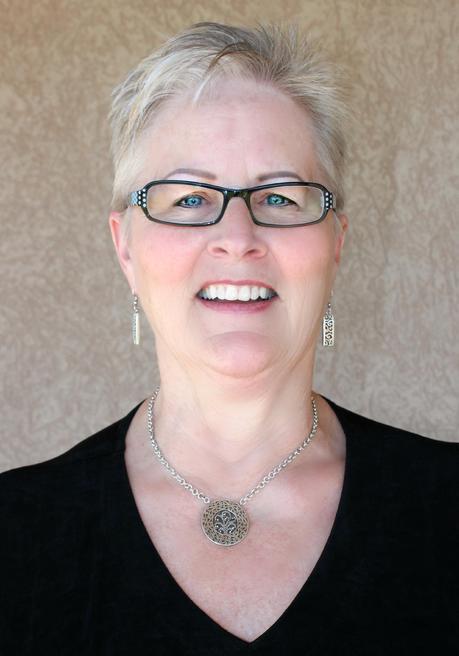
- Water with water filter or purifier
- 72-96 Hour Bug Out Bags/Kits-totally filled/decked out
- Food-you will eat
- Light Source
- Gun or Knife
- First Aid Items

As for the three most important things to get a prepper started; I would
have to start with the knowledge of survival, which is what my site;
ApocalypticSurvivalGuide.com is about. I know that was a shameless plug, but
you might find yourself in a situation where you don't have access to any equipment.
The second thing that I recommend is a sharp blade. You don't need an awesome full tang, rubberized grip, high carbon steel blade with built in fire starter survival knife or anything like that, just a simple pocket knife will suffice. Also, you can carry it on your keys and the police wont question you for it.
As for the third piece of equipment for a prepper to get started with, I would have to direct any newcomer to the field of prepping and emergency preparedness to my site again. I have a detailed description of a bug out bag with all of the gear that you need to survive most situations. http://apocalypticsurvivalguide.com/survival-gear/bug-out-bag.php. Just make sure that you keep the bag in the right place, it would be useless if the S.H.T.F. while you are at work.
David Spero Code Green Prep
That’s a good question, of course, although my first response would be
‘only three?’. That’s a bit like ‘If you were granted three wishes for anything
you like, what would they be’. My answer to that is always ‘My first wish would be for an unlimited number of additional wishes’!
Beyond that, I guess the key thing is to consider the rule of thumb :
- Without air, you can last three minutes
- Without shelter, three hours
- Without water, three days
- Without food, three weeks
And use this as guidance to prioritize what one needs and should have.
So, using this as our hierarchy of needs, and assuming that the need for air is not an issue, our first requirement is shelter. Let’s think of that as comprising two parts. Safety and energy.
Safety could mean somewhere with walls and roof, and/or it could mean a gun.
Energy means an ability to manage the environment to keep it survivable – somewhat warm in winter and moderately cool in summer.
A person will know about their needs for safety and energy. Maybe they live somewhere temperate year round, and are assured an intact structure and friendly neighbors. Maybe not. My point is simply this. Rather than state a specific item that should be the first thing, I’m saying the first priority is to address your need for shelter – a safe place with a survivable environment.
So, once that is done, can you guess the second thing. Yup, water. Again, people’s solution and needs for this will vary enormously. In my case, I’ve got a year-round stream on my property. So I do need a water filter. But not everyone has a stream – what use is the classic water filter, be it whatever make/model, if you’ve no dirty water to then filter through it! :)
So, from my top down perspective, item number two is simply the means to provide sufficient water for your needs for whatever period of emergency you’re prepping for (which opens up another ball of wax, doesn’t it – are we prepping for the power line going down for 12 hours, or for the ‘big one’ solar storm/EMP/apocalypse?
Which brings us to number three. Food. Can we cheat and say that you have the means to cook it as part of the number one item – survivable environment and energy? Otherwise, you know, a lot of that dehydrated stuff that you might have stored up is going to get pretty hard to eat, pretty quickly!
There’s really quite a chain of dependencies when you look at food. Many people simplistically think ‘I’ll store some food, and I can check that box off my prepper checklist’. But you need a way to open your food supplies, a pot to cook them in, a heat source to cook with, crockery and cutlery, and then – oh yes, trash removal/disposal and washing up/cleaning.
Sure, in a pinch, you can get by without some/many of these things, and it again depends on what level of preparing you’re doing and what level of lifestyle you wish to preserve.
This gets to the heart of your question – sorry, but listing three specific items isn’t enough. A chain is only as good as its weakest link, and if anyone thinks that after getting three specific things, they’re well on the way to being prepped and insulated against life’s future risks and uncertainties, that’s just not so. Murphy’s Law will come back to haunt anyone who thinks that.
Alan Halcon Outdoor Self RelianceGear is not what a beginning prepper should start with... Skill should be number one. If you have the skill, most anything can be improvised.
Now, for a beginning prepper, if we are talking stuff, Food, Water, and a way to keep warm.... All you have to do is think about what you need on a daily basis at home just to get through each day... food, water, shelter and of course medication if one is on it.
What do backpackers need to start with? Food, water, shelter. How about when you go camping? Food, water, shelter. What do little kids need? Food, water, shelter. I'd rather have a pack full of food and water, than a pack full of other items such as a knife, ammo, lock pick set, etc, etc
I know it's probably not what you're looking for, but It's the simple fact of life when you strip it to its core...
Richard Morgan Great Northern Prepper First thing is that since you are already considering or starting a preparedness lifestyle you have already conquered the biggest hurdle and mastered the most important aspect of preparedness, the mindset. With this mindset you are already set up to meet any challenge that comes your way, way better than 95% of the population.1) However the true first thing you need to do is get your financial house in order, sit down (if applicable with your significant other) and look at your monthly expenses. Divide them up into WANTS and NEEDS, now this will be slightly different for each person so I will generalize.
NEEDS are things like the following...
-Power
-Heat/AC (depending on your situation this may be part of the POWER section)
-Rent/Mortgage
-Food
-Gas to get to and from work and to get the supplies, pay bills, etc. Not to go on vacation
-Cell Phone. Now with this it may be necessary for your job etc, in this case its a NEED, however unlimited texting is probably not look at all of those aspects of your bill as well.
WANTS
-Internet (now this may be part of your job, use your judgement)
-Cable TV
-Eating out
-Entertainment (i.e. movies, etc.)
-Car Washes
-Lattes, Coffee
Of course this isn’t a complete list, but you get the general idea. Once you get every penny accounted for, show what your take home income is, accounting for taxes, etc. and what you spend, then see how much you can trim off without driving yourself (or more importantly your significant other!) crazy so to speak and then see how much you can put into prepping. Its better this way then just spending without knowing, and besides you should do this whether you want to prep or not, and It will make a huge difference in your life just doing this one step.
2) Food is King so begin to look at what you can spend and start making lists of things you normally eat that can be stored long term. Eventually you can start getting the buckets of wheat and spelt, etc. But first just start buying extra of what you already buy, this is called "Copy Canning" (however it isnt just "cans"). If you normally buy 4 packets of spaghetti, 10 cans of corn and 1 package of rice a month, perhaps buy 5 packets of spaghetti, 12 cans of corn and 2 bags of rice, or however you want to do it. Stash those away (and with the pasta/ rice you can bucket it now or once you get enough). You will be amazed at how much you can stock away. You do this so in an emergency you are eating roughly the same stuff you did before, not that much of a difference, and less of a shock then eating wheat berries and soaked beans 3x a day! Then take those cans and pasta, etc. and stash them in a way that you put the older cans forward on the shelves and the newer ones in the back, eventually when you get a lot, start eating what you have bought before and buying new stuff, this is called FIFO (First in First out) Rotation, so you always have fresh stuff coming in and older stuff going out.
3) I would recommend looking into buying a home defense weapon, not just for prepping, but everyday people are victims of various crimes in their home, and it is just common sense to have something to defend yourself with. A Shotgun is the King of Home Defense so I would recommend that first, if you are a average size male I would go for a 12 gauge, if you are a smaller framed female, perhaps a 20 gauge is in order. A few caveats to this however; If you do buy a gun go out and get training from someone reputable, could be a relative or friend that knows what they are doing, or could be an instructor you pay, even if you have to pay its worth it. If you however are planning to carry concealed then you may buy a pistol for that first, so you can do both, but very soon afterwards I would buy a shotgun; remember pistols are for use in 2 scenarios...1) where you cant carry a shotgun without causing a scene, etc. and 2) when your main defensive weapon is down or out of ammo, that’s it. I have to stress again, go out and get proper training.
Overall I will say that becoming a prepper doesn’t have to BE your life, in reality it is something that if done right only ADDS redundancies to your life. First rule is don’t prep out of fear, be smart and rational, don’t let yourself be overwhelmed with all the parts that can become parts of your preps, don’t look at all the solar panels, and mega lists of MUST HAVES, just look at what you can do now, pick one or two and tackle those, then move on to the next part. Jodi and Julie Food Storage Made Easy

The three things we would recommend for brand new beginners are:
- WATER
- A butane stove
- A few just-add-water meals
This will at least get you through the first few days of trouble. Once you have that covered you can go into a lot more depth with your long term preparations.
Rob Richardson Off Grid Survival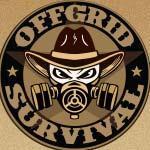
When people who are just getting started in prepping ask me for gear
recommendations, I usually tell them the first place they need to start is
with knowledge. Knowledge is the key to survival, and in my opinion, the first
place anyone should start. It’s the one thing that won’t fail you during a crisis or emergency situation.
As far as specific gear, I usually tell them to look at categories instead. The three categories I recommend starting with are food, water, and shelter. These three things are necessities for life, and should guide any new prepper when figuring out what they need to start stocking up on.
Tom Sciacca Camping Survival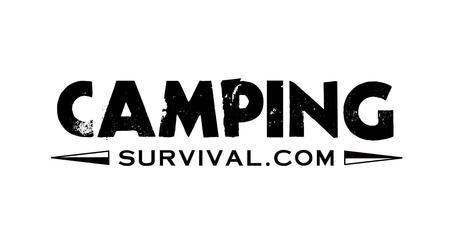
Good morning Tough question. So many variables. I think information/knowledge and skills are more important than going out and buying gear. Figure out where your lacking in skills and start acquiring them. Here are a few things that I let friends borrow when they express interest http://www.campingsurvival.com/nucwarsurski1.html and http://www.campingsurvival.com/lightsout.html and http://www.campingsurvival.com/videos.html
Florida Hillbilly FloridaHillbilly.com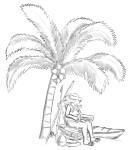
The simple answer is "training", "knowledge", and "info" :P
There is a site call KWN...it stand for "knowledge weighs nothing", and falls
directly into line with just about everything I've ever been trained on, be it computer security or wilderness survival. No matter where you are, or what situation you are in, knowledge is ALWAYS with you....
And having knowledge also spills over into everyday things. Just having a Leatherman in my pocket doesn't always help, but knowing how to use a knife does.
One of my favorite examples of knowledge over gear is this video of Ray Mears walking into the woods, finding what he needs to shape a knife, build a bow drill, and then a fire.
Get training, be it small engine repair, fishing, trapping,farming, low voltage solar systems, couponing, whatever.... And when you do end up buying "stuff", learn how to use it! Having a set of jumper cables is useless, possibly even dangerous, if you don't know how to use them.
Knowledge is my number one prep item, in multiple forms...and it extends beyond the how and why....The very first thing we teach at Green Earth Survival School isn't water, shelter, or fire...its PMA, or "positive mental attitude". What goes on in your head is the most important part of any situation, and is usually the deciding factor on "live or die?".
Prepping isn't a destination for me, its a journey. Preparedness shouldn't be directed at a single catastrophe, but rather a general ability to adjust to unforeseen circumstances. Understanding that bad things like nuclear winter or zombies are far less likely to happen than a job loss or a flat tire. Knowing how to adapt to the crisis is the biggest factor I worry about and try to prepare myself....just in case.
And you never go wrong with a good sharp knife, a piece of paracord, and a ferrocerium rod.
As long as you know how to use them :)
Rourke Modern Survival Online
The 3 most important items for a new prepper to get started with are as
follows:
- FOOD - Start buying a few extra's of everything. Rather than buying one jar of peanut butter - buy two, and then when one jar runs out - buy two more. Do this with most everything as you can afford it - and your food supply will increase quickly. Emphasize those foods that can be prepared easily - such as canned goods, "add water only" pancake mixes, canned meats, and rice. Think about what foods would be easily prepared while camping.
- WATER - Water is critical for survival due to not only drinking it - but sanitation and cooking. Most all household drink soft drinks and throw away 2-liter bottles. Save them! Wash them out and store water in them. This water is excellent for sanitation purposes. Spring water can be purchased for as little as .65 cents a gallon - stock up. Store them under a bed, in a garage, or wherever. Wally world also sells container made just for water in their Camping department - put back a few of those.
- LIGHT - Have plenty of flashlights and batteries put back. There is not much that is worse than having no power - and having no method for lighting. If movement is required in the dark and no light available - chances for injury increase dramatically.
Depending upon your geographic location #3 may be blankets and propane heaters in colder climates, or if you are on special medications might be extra prescription medications - just in case. These questions are fun to think about and discuss - but the answers will never be right for everyone.
Doc Cindy Armageddon Medicine
From a medical standpoint, I would say to start with the following:
- A wide assortment of OTC medications to treat common problems,
to include the following:- ibuprofen and Tylenol (for pain and fever)
- Bonine/meclizine (for nausea and dizziness)
- Imodium (for diarrhea)
- MiraLax (for constipation)
- Prilosec or Prevacid (for acid reflux or stomach pain)
- Pepcid or Zantac (for acid reflux and also allergic reactions)
- Benadryl (for sleep and allergies)
- Lotrimin Cream (for fungal infections)
- Asthmanefrin (for serious allergic reactions and asthma)
- A back-up supply of any prescription medications you already are taking
- A general medical book so you know what you're doing (perhaps Armageddon Medicine)

Here are some of the basic things people should consider getting when
beginning to prep:
- 72 Hour Emergency Kit - This is the basic thing everyone should have. You never know when an emergency will happen and you want the peace of mind that you will be able to care for yourself and your family for at least 3 days.
- Water & Food Storage - Go ahead and get a few cases of water and 1-3 months worth of food. Don't overcomplicate it - just find 12 meals you enjoy eating and times it by 3.
- Protection - Get something or have a plan to protect yourself! It doesn't necessarily have to be a gun, but a security system, locks, pepper-spray. Just something so you and your family feels safe.

My advice for the three most important items for a new prepper
would be:
- Get the mental attitude - understand what your specific challenges
will be and make a plan to be safe in those instances. Do you need to
prepare for earthquakes, wildfires and civil unrest? How will your family communicate if you are separated? Once you have a plan you can buy or make the things you need. - Get your water storage together. Purchase containers and fill them. Learn about the ways to find and make your water safe when your supply runs out. We know in the Pacific NW that we can't count on the city water pipes working after a major earthquake. I like the LifeStraw filter because it's small and easy to use.
- What are you going to eat if you have to bug out? Survival Food is important. Look for something that's simple to store and quick to prepare. It should take a minimum of energy to cook it. So MRE's (if you like that kind of thing) or freeze dried foods are great for on the go eating.
Then of course there's... a bug out bag, emergency cooking options, flashlights, radio's....it never ends really. I don't know if I will ever be able to say "I'm done preparing!"
The Orange Jeep Dad Orange Jeep Dad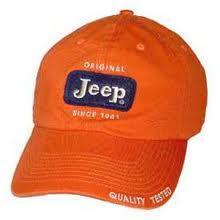
First and foremost, for me, would be a good pocket knife. I use mine daily.
Since knives are as plentiful as excuses, I won't get specific.
Second, is a multifunctional watch: compass, time peice, timer, night light (flashlight) = very helpful.
Lastly, I do a lot with my smart phone. Apps on how to tie knots, first aid, you name it...it's on an app out there. Coupled with this should be either a backup battery source or solar/crank charger.
Julie Sczerbinski Home Ready Home
I'd recommend everyone get a Kelly Kettle (kellykettleusa.com) because
it's dual purpose. You can cook with it and purify water with it. Two important
categories: food and water (Here's my demo on it: http://www.homereadyhome.com/2013/09/02/bug-out-bag-introduction/)
I'd also recommend seeds. The food you have stocked up on can't last forever, you need to be able to replenish your food supply. To be self-reliant, you have to know how to garden so get some seeds and get started.
Which brings us to my final recommendation. Get a canner and a dehydrator so you can learn to preserve and store the food grown in your garden.
The Herbal Survivalist Herbal Survivalists Spot
First go to my site and read about the herbal survivalist that will explain
what I am about to say.
Food, Water, Medicine, "Personal Hygiene Products"
Look at this list backwards; if there is a lack of personal hygiene products what will happen? lack of personal hygiene = "Bacteria(s) 2. Bacteria(s) = illness' which need medicine to heal or repair or eliminate. 3. Illness' need medicine but also nutritional supplementation(s). In order to provide true nutrition to ALL our main systems we need Good Food and a Pure Water Source to maintain overall hydration health for this to gets applied to all our main systems. Removing one element from the necessary elements to survive will affect all the main systems of the human body; Respiratory, Circulatory, Central Nervous System as del as the skeletal and muscular systems.
Secondly, On a water system I highly recommend and have myself is the Mini Works MSR micro filter . This is issued to the US marines. Also note others due to wear from the dirty water supplies need to be replaced yes, (the Whole Filtering System) this unit has a maintenance kit that is very inexpensive and is comparable and if not bet than the other models out there I also carry a spare filter with my system.
Thirdly, they must work together and not try to delegate all survival tasks and resources to themselves but with realistic and reliable individuals also remember we should also take glare of the disabled and the elderly regardless and above all we MUST put GOD FIRST and include him in all we do plan and learn. Go to the post Hope Herbs and the graces off God and after you read it watch the short training video at the end and you will be amazed what you just learned and pass it around.
References:
- Vital Survival Herbs
- Making a Powerful Survival Tonic
- 3 Superfoods that will help you survive a food shortage
- Preparing for a seasonal Change "Slippery Elm Bark"
- Preparing for a seasonal change "BEE POLLEN"
There are also Video sections for beginners on my site for building a bug out, good, and inch bag(s)
PJ Prepper-ResourcesObviously the answer is different for each family, but given a standard middle class suburban type family who have zero in preps...
- Some sort of 72 hour emergency kit which includes food, medical supplies and the usual disaster kit items.
- Water filtration device & Water Bob
- Emergency solar radio
That covers the basic necessities in my opinion.
Gary Griffin PrepperLinkItem/Task 1: Access to Clean Water
The first step is ensuring there is access to clean water. This can be accomplished by having means to treat water by filtration, UV light, or chemicals, or by having a well. If you go the well route, you need to ensure that you can extract the water by a pump or a primitive bucket-type system. And if you pump is electrical, there must be a means to operate it without grid power (i.e. solar generator, gas powered generator, etc.).
For filtration or treating water, it is recommended to have methods which compliment your survival plans; Bugging In vs. Bugging Out. I will caveat this also by saying that at a minimum, you should have an inexpensive water filter that can be carried in a Bug Out Bag, even if you plan is to Bug In.
Boiling water will kill most types of disease-causing organisms that may be present (Source: Environmental Protection Agency). However, if boiling water is your only means to purify water, it requires large amounts of dry materials. Additionally, boiling water will not remove any chemicals or metals.
For Filtration on a budget or for Bugging Out, purchase a Lifestraw for each member in your family/group. A lifestraw is rated for 264 gallons of water. Another option is a reputable backpacking unit, such as the Katadyn Vario or Katadyn Pocket Water Filter. Most of the highly portable filtration units are unable to filter out chemical or metals.
UV pens are another option, although they do not remove chemicals or metals.
For Bugging In, there are many options for the Prepper. The coveted Berkey water filtration system is a great choice. Another good option are Sawyer water filters (http://www.sawyer.com/water.html). Sawyers are cheaper than Berkeys and can filter water faster.
Lastly, if you have the budget, look at purchasing a SAFH20 water filtration/UV unit (http://www.safh2ouv.com/). I own a SAFH20 and it is worth the investment. There are several SAFH20 models out there, can be powered by AC or DC power, and a few models can be connected in-line with your current water supply. What separates the SAFH20 from other systems targeted to the outdoors and preparedness crowds is that it has a 3-4 stage water purification system and it filters up to 3 gallons per minute (180 gallons per hour). The systems use a pre-filter/screen, a 1 micron sediment filter (larger models), a .5 micron carbon block filter, and a UV light (which exceeds WHO requirements).
Note to anyone interested SAFH20 products: Mention Prepper Link at checkout, and you will receive a 10% discount.
Here is our Water handout, similar to your blog post - http://www.prepperlink.com/index.php/downloads/category/1-document-downloads?download=196:0100112-water-purification
Item/Task 2: Food
Food would have to be next. How much food depends on the length the individual is preparing for. Food is the first thing to be cleared from the grocery stores pre-disaster. At a minimum, everyone should have 1 week of food stored.
If you are in it for the long haul, long-term preparedness, having seeds, farm animals, and fruit trees are a must; if you current living arrangements allow for them. Start planting a garden now to gain experience. Gardens can be planted in very small areas, such as a porch.Get out there and hunt and fish.
Item/Task 3: Medical Supplies
Having a fully stocked first-aid kit is a must. Think about the cuts and scrapes that can easily become infected. It is the little things that will kill us (infections), not gunshots, although you cannot count those out as well. So my family triage plan starts right there. Store plenty of bandages, gauze, rubbing alcohol, Triple Antibiotic Ointment, OTC medications, and pet medications. I recently cured a painful ear infection by taking Fix Mox (Amoxicillin) and using a 50/50 mixture of rubbing alcohol and vinegar to clean out my ear and regulate the PH balance in my ear. Don’t forget about medical reference materials, to include a prescription drug guide. If you use pet medications, know what their equivalent prescription drug is and what it treats.
Ready 4 It All Ready4ItAll.orgIn my opinion, the first 3 things a new prepper should have would be:
- a minimum of $1,000 in an emergency fund
- 30 days of stored food with a minimum shelf life of 1.5 years.
- 30 days of stored water - 1.5 gallons per person per day
*bonus (because I think it's equally important) a documentation binder that has copies of all important financial/insurance information, bugout maps, identification (along with the documentation required to get replacement ID cards) and any other documentation you may need after a disaster. Not the most exciting of lists I know, but definitely my top 4.
Damian Brindle reThink Survival
The three most important items for a new prepper to get started with
could be many things. In fact, the more "into" prepping you get the more
you realize there's A LOT to consider! But, if I had to be pinned down to something it would have to start with a plan. There are many ideas as to what you can and should include and I have my own ideas but the general concept is to begin to consider what emergency scenarios you could be faced with and then create reactions to those scenarios. This could include simple things like meeting places after a house fire, evacuation routes for a looming hurricane, and even phone numbers of emergency services and trusted relatives, as well as much more. After that, I would focus on water. Water is probably the ONE thing we take for granted more than anything else, besides oxygen, that is. Start with water storage above all else. Water filters and gadgets are nice but if you have water that you know you can rely upon then that makes things much easier. Start with a bare minimum of 1-2 gallons per person per day for two weeks and then work to add more from there. Last, you need to consider the other NEED every human has, and that's food. While there are many types of emergency food to consider, including freeze-dried, MREs, bulk foods, and more, my advice would be to focus on filling your pantry with foods you already eat. The easiest way to do this is to utilize the "copy canning" philosophy, and that's to simply buy two cans/boxes/packages for every one you consume. As an example, if you used two cans of green beans and four cans of corn this week, then the next time you go to the store buy four cans of green beans and eight cans of corn. Yes, this can get a bit expensive but you would be surprised at how fast you can bolster your pantry. Start with these suggestions and you'll be far better prepared than you would imagine.
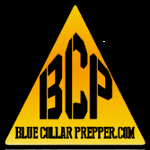
As you know, I try to focus on low-cost solutions to prepping for working
families. The first thing to keep in mind is the need to prep for 2 scenarios -
the short term emergency, and the long term situation.
For short term, the first and most essential thing to have on hand is water. It should be enough to last 72 hours. It doesn't need to be in water bottles, or those ridiculously expensive little packets of emergency water rations - just regular, 1 gallon jugs from the supermarket will do. They last indefinitely (despite the expiration date) as long as they are stored out of direct sunlight.
A long term solution will require the prepper to find a sustainable water supply - if running water is unavailable, a nearby lake, river, well, etc will do, as long as you have the means to purify the water. The easiest and most effective means of purification is boiling the water. Small amounts of bleach or iodine will work also.
For survival on the move, the LifeStraw seems to be the best option requiring the least amount of time and effort, which may be essential to survival. It will filter up to 1000 liters (over 264 gallons) which is certainly enough for even use by multiple people. It can be used to drink directly from any source of water, even muddy, polluted puddles in a ditch or curb.
The second item new preppers should focus on is the obvious one, food. Grocery stores usually only carry enough to last for 3 days without restocking. In emergencies, the shelves empty far quicker than that. Instead of MREs or those dehydrated food buckets which cost an arm and a leg, focus on food supplies with long shelf life that you can build up gradually over time without sacrificing your already limited budget. Bags of rice and dry beans are always reliable and cheap. Be sure to store them in dry, airtight containers to prevent mold, bugs, or mice from contaminating them - the 5 gallon food grade storage buckets most preppers rely on are generally available for free from WalMart bakeries. Canned goods are perfectly fine long after their expiration date as long as the can is not damaged - http://www.npr.org/blogs/thesalt/2012/12/26/167819082/dont-fear-that-expired-food - and it is easy to gradually build up a stockpile of them over time.
Finally the last item seems like a bit of a blow-off, but it's really not: planning. I'm not talking about a general idea of maybe bugging out to the country if things start to get really bad in the city. Your plan should be a blueprint for exactly how you will deal with emergency situations as they arise - with multiple contingency plans - on exactly what you will do (if you plan to shelter-in, how will you protect yourself if your location is compromised, or how you will respond if you are forced to evacuate by national guard troops or police - this happened in Katrina). You should know your local area like the back of your hand, and have multiple routes of escape laid out if major roadways are closed. Every member of your family should be involved in the planning process and know what to do. Practice your plan with several dry-runs to work out any problems before hand. Finally, be flexible. If you can adapt, you can survive.
Dale Survivalist Prepper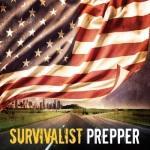
Unfortunately when someone starts to think about prepping it’s
because either something catastrophic has happened or there is a fear
of something potentially happening.
My advice for anyone new to prepping is first of all take a deep breath and look at the big picture. Learn as much as you can, but take everything with a grain of salt. As we well know, not everything on the internet is true.
A few of the things that I think anyone new to prepping should do to help them on the journey to self-sufficiency are…
A few of the things that I think anyone new to prepping should do to help them on the journey to self-sufficiency are…
- Take a personal audit of yourself. Prepping begins with your financial situation and geographical location. Before you even begin to fill your bug out bag make sure you are preparing for situations that are more likely to affect you, tornados, floods, earthquakes etc. Also, determine how financially capable you are to prepare the way you feel is necessary without going into further debt.
- Learn 3 different ways to make a fire, 3 ways to purify water and learn how to make shelter in an emergency situation. It is important to not only learn these, but practice these as well. You don’t want to be in the middle of a disaster and be trying to remember how that YouTube video went. These could all be needed skills to have not only for large scale disasters, but more localized disasters as well.
- Start small and build up. Stockpile enough food, water and supplies to last you at least a month, if that is not possible have at least a week’s worth of essentials available while you work things out.

Since I deal with medical survival, I'd say gauze, tape, and a safety pin. From a general aspect, water storage, water filter, and non-perishable food including honey (for nutrition or as topical antibiotic).
Mark Goodwin Prepper Recon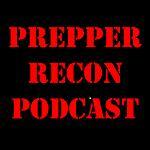
I think the number one thing new preppers need to focus on is making
sure they are personally prepared. In my 7 Step Survival Plan, I start with
Body, Mind and Soul for step one. I think it is important to be in good shape via physical exercise and eating healthy and getting rid of addictions that will slow you down in a teotwawki situation. I also think folks need to be spiritually prepared which Jesus says comes from believing in Him. We can get our mind prepared by learning new skills like gardening, hunting, self defense and learning to use alternative energy.
Step two in my plan is getting on a budget. too many preppers are gearing up for teotwawki but creating their own personal SHTF moment by not managing their finances.
Step three is getting some long term storage food and making sure you have several sources of water. I recommend starting with beans and white rice as they are very cheap and last for several years. Beans last for up to 10 years and white rice will last for 20 years. I really like the Katadyn water filter which is great for your bug out bag and your home. I would also recommend water catch barrels or having a hand pump for a well. Also be aware of water sources in your area.
Dave in NY New York State Preparedness NetworkThe first thing to start with is shelter. If you are in a cold climate that would include heat. In a hot climate it would be a place to stay cool. If you are in a hostile zone you need concealment and possibly cover. It can be as simple as having the right clothing or as complicated as a bug out retreat.
The second thing would be water. You need a good source of water and a way to purify it. I would suggest boiling and filtering to remove both biological and chemical threats. I would not cheap out on the filter. For portable I use Katadyn and for stationary I use Berkey.
The third thing would be food. It is difficult to suggest where to start with food because of all of the different dietary needs of people. One of the easiest things you can do is copy canning. When you use a can of something, replace it with two and set on aside. Having some portable food like MRE's and Mountain House is advisable in case you have to flee.
TADPrepper Approaching Day Prepper
My answer is food, water, and the means to protect them.
As for food, I prefer a combination of approaches -- some canned foods, some dehydrated, and some freeze-dried, all with an eye toward simple and energy-efficient preparation.
As for water preps, start basic and get more exotic over time as you get your bases covered. I like keeping some cases of individual bottles of water on hand. They are highly portable and easily refillable. My next step up would be to acquire several food-grade 5-gallon containers and a couple of spigots to go with them. Much higher capacity and about the biggest size that the average person could carry a short distance without struggling too much with it. I also like the idea of having one of those big plastic bladders that you put in your bathtub and fill up as soon as trouble hits. They can hold 100 gallons or so. After doing these basic kinds of water preps, then we can turn to filtration or purification systems.
The last item on my list is security equipment, specifically guns, ammo, and the training to use them safely and effectively. Diversification is import in this area, too. A good pump-action shotgun is great for home defense, handguns are best for portability and concealed carry, and rifles are the best when you want to put food on the table from a distance. Some of each, please.
BUT WAIT...THERE'S MORE...
Wow, that was some good stuff and the best part is you're only half way through.
Click Here to continue reading in Part 2 of our Prepper Expert Roundtable
